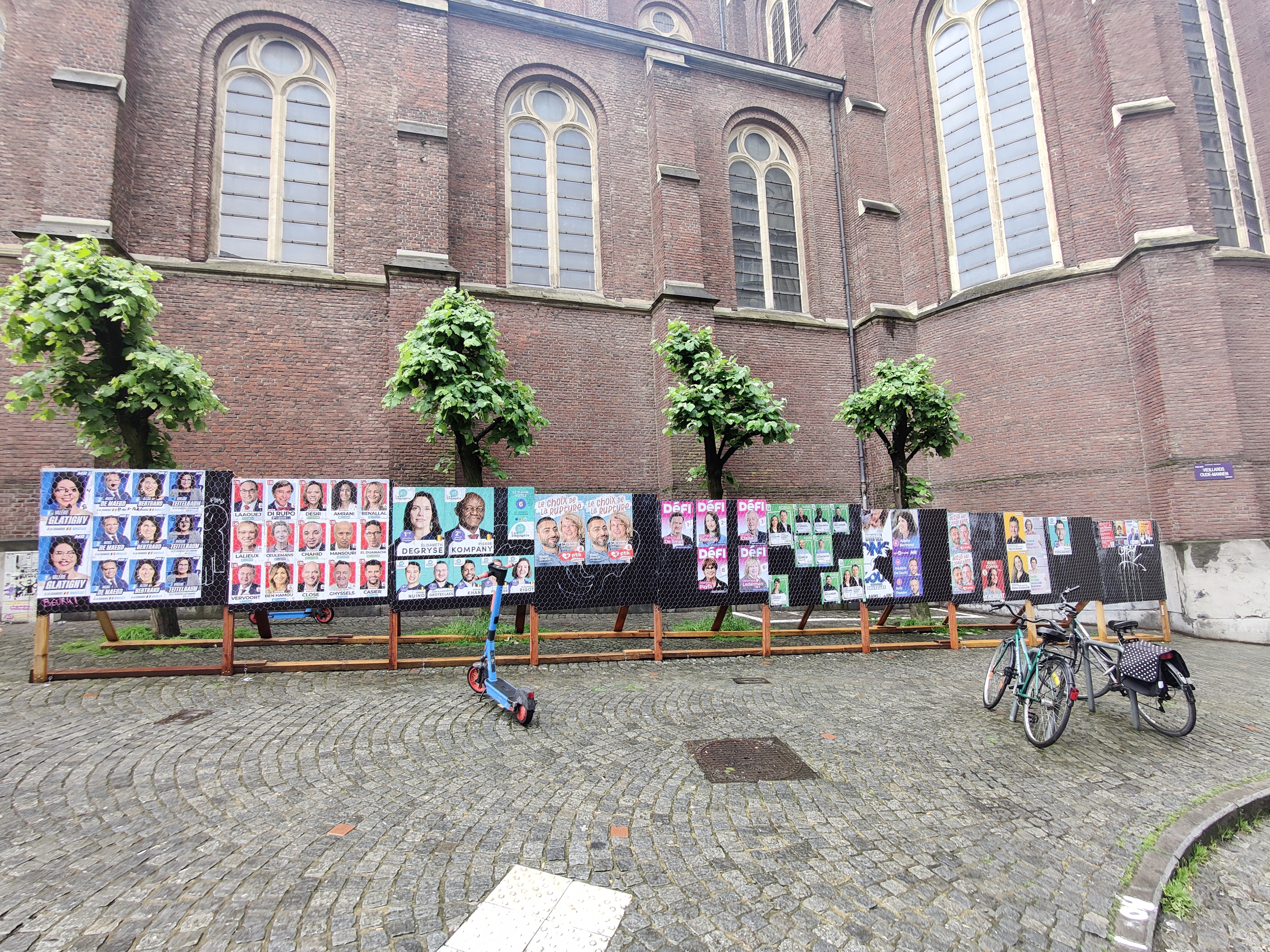Brussels Briefing: What the EU elections could mean for social enterprise | The Social Enterprise Magazine

The European elections are right around the corner (taking place from 6 to 9 of June) but for those of us who are Brussels based, this is just one of the many elections taking place. On 9 June, Belgium will also be going to the polls to elect new regional and federal representatives, which means shop fronts and billboards are progressively being filled with election posters. We can only hope that the hearts and minds of the candidates are equally filled with plans on how to support the social economy.

Campaign posters for the candidates standing in the upcoming elections in Belgium on the Parvis de Saint Gilles
As with any European election, it’s never certain what will happen. The choice of the Commission president and the commissioners will be informed by the results of the Parliamentary elections. The heads of member states, however, also have a role to play in approving any appointments to these top jobs. So while it may seem like Ursula von der Leyen (the European People’s Party lead candidate) is in front to be the next Commission president for a second term, things could still change if there’s a sudden surge in support for the Socialists and Democrats. The lead candidate for this political grouping is Nicolas Schmit, who has been playing a leading role in the development of the European social economy since 2019.
The future face of competition in the EU could be made up of innovative enterprises operating within planetary boundaries and including communities in their business
What looks almost certain for the direction of the next European Commission is that the emphasis on the green transition will be dialled down. In its place, there will possibly be a new focus on European competitiveness. Of course, being green and competitive go hand-in-hand, as does social entrepreneurship. Perhaps an emphasis on competitiveness could present a new opportunity for social enterprises: the future face of competition in the EU being made up of innovative enterprises operating within planetary boundaries and including communities in their business.
The social economy’s role in the single market
It’s likely that not everyone will be as excited as me about a 147-page report, Much more than a Market, by the former Italian prime minister Enrico Letta about the European single market, 30 years after it began. Not only is it important that the single market has reached a 30-year milestone, but it is also vital that there is a continued interest in ‘completing’ the single market. While many areas of trade and the European economy have become highly integrated, barriers still remain in several sectors which need to be addressed. This is not news to the social economy – specific legal forms are not always recognised across borders, and they can struggle to operate across borders and receive cross-border financing.
This, however, isn’t the biggest news for the social economy coming from this report. Throughout the report, numerous references are made to the social economy and social enterprises, which is undoubtedly positive. There’s recognition of the importance of key topics like social procurement (public and private), encouraging an acceleration of the strategic use of public procurement to support the social economy. It is also noted that rules around State Aid may need revision to allow more support to social enterprises. There is recognition of the need for an EU-wide approach to social impact financing, as well as a definition. There’s a clear emphasis on the need to develop enabling framework conditions, linking to and building upon the Council Recommendation on Social Economy in November 2023 and the Social Economy Action Plan of 2021.
The report says: “Creating the right environment for the social economy to thrive will not only lead to further job creation in the sector, but will also contribute to strengthening the social dimension of the single market.”
Indeed, it is explicitly observed that continuing the development of the single market should not come at the expense of the environment or society. The social economy is recognised for its significant contribution to the European economy and in the sustainable and inclusive development of local economies: “Social economy businesses are pivotal in fostering proximity and the sustainable development of territories, embodying the essence of a people-centred economy that is deeply rooted in local communities.”
While many may be feeling apprehensive about the upcoming European elections and what they could signal for the next five years of EU decision-making, the recognition of the importance and value of the social economy by Letta in the review of the single market should be taken as a serious and meaningful step in making the social economy part of the mainstream.
- Toby Gazeley is the Brussels-based policy lead at Euclid Network.
Thanks for reading our stories. As an entrepreneur or investor yourself, you’ll know that producing quality work doesn’t come free. We rely on our subscribers to sustain our journalism – so if you think it’s worth having an independent, specialist media platform that covers social enterprise stories, please consider subscribing. You’ll also be buying social: Pioneers Post is a social enterprise itself, reinvesting all our profits into helping you do good business, better.






